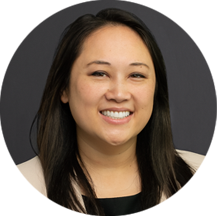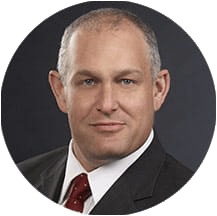WHAT IS J-1 VISA AND WHEN IS A WAIVER REQUIRED?
A J-1 visa is a nonimmigrant exchange visitor visa. There are multiple types of J-1 visas such as: au pair, work/study and research scholars. Generally speaking, the theory of the J-1 visa is to offer foreign nationals an opportunity to gain experience, either through an academic or work program, or both, such that they will be able to return home and share the knowledge and skills that have gained while here in the U.S. These educational and cultural exchange programs are designated by the Department of State’s Bureau of Educational and Cultural Affairs and sometimes, the individual’s J-1 visa subjects the person to leave the U.S., usually to return to their home country for two years before they can adjust or change status. There are different types of waivers available of the two-year foreign residency requirement. This article will focus on the extreme hardship waiver.
WHAT ARE THE REQUIREMENTS OF A J-1 WAIVER?
There are two agencies involved in the adjudication of the J-1 waiver. First, the United States Department of State (“DOS”); second, U.S. Citizenship and Immmigration Services (“USCIS”). In order to apply for a waiver, the individual must first register with the DOS. Thereafter, the form I-612 with supporting evidence is filed directly with USCIS. USCIS will then notify the DOS whether or not it agrees with the hardship determination. USCIS will review and evaluate the applicant’s case to see if the applicant has satisfied a two part test to amount to exceptional hardship. The applicant will need to show that the applicant ‘s U.S. citizen or Lawful Permanent Resident spouse or child would experience exceptional hardship if this waiver is not approved and the applicant must return to their home country to complete the two-year residence requirement..
The first step is to establish that the applicant’s U.S. citizen or Lawful Permanent Resident spouse or child would experience exceptional hardship if he or she resided in the home country for two years with the applicant. The second step is to establish that the applicant’ U.S. citizen or Lawful Permanent Resident spouse or child would suffer exceptional hardship if he or she remained in the U.S. during the period the applicant resides abroad.
WHAT DO I NEED TO SHOW EXCEPTIONAL HARDSHIP AND HOW DO I DO THIS?
There is no concrete definition or requirement to the term “exceptional hardship.” It is often an obscure and enigmatic term where an applicant’s unique facts and circumstances are used to demonstrate “exceptional hardship.” Additionally, the general trend has found that USCIS will decline to find exceptional hardship unless the degree of hardship expected was greater than the anxiety, loneliness, and changed financial circumstances ordinarily anticipated from a two-year residence abroad. Simply a temporary separation, even though it may not be a common event that families would experience, some families will still face this in life and simply by itself, does not demonstrate the exceptional hardship required in order to waive the two-year residence requirement abroad.
In order to demonstrate exceptional hardship, the applicant must support his or her arguments of such with supporting evidence. Simply stating the hardships, without supporting documentary evidence would not be sufficient for purposes of meeting the burden of proving the applicant’s case satisfies the exceptional hardship. In order to pave the way for a successful application, heavy documentation should be included in support of the hardships proposed by the applicant and the family member. Various factors of hardships should be discussed, but not limited to the following: financial; medical, including psychological and physical; emotional; instability or dangers for the applicant or family member in the home country; and disruption of the family member’s life here in the U.S. Other factors that have a trend of successful approval may be the following but not limited to: interruption of the spouse’s career and/ their pursuit of graduate studies, arguments of fear of persecution that can be argued as a hardship, detailed monthly budgets with supporting documentation, and medical conditions with thorough documentation.
Furthermore, the decision is to be based on the totality of the circumstances, meaning that USCIS is obligated to make a decision on the applicant’ case based on all hardships and factors present, and not any one particular factor. The key is to show that in the totality of the circumstances, the applicant’s spouse would suffer significantly beyond that normally suffered by the temporary separation of families or temporary relocation to the applicant’s home country in order to avoid the separation. If USCIS approves the waiver then the DOS traditionally recommends the same.
At Wilner & O’Reilly, we specialize both in determining waiver eligibility and drafting effective waiver applications. Please contact us to receive a free consultation regarding your case. We have office in Orange, Riverside, San Diego, Fresno, Sacramento, and San Francisco, California; Salt Lake City and Orem, Utah; and Boise, Idaho.
ABOUT AUTHOR(S)
CRYSTAL CORTEZ – ASSOCIATE ATTORNEY – SACRAMENTO

Crystal Cortez is an associate attorney with the Sacramento office of Wilner & O’Reilly, APLC. Ms. Cortez earned her juris doctorate at Atlanta’s John Marshall law School and is admitted to the Georgia bar. She is licensed to practice immigration throughout the United States. She has experience in representing clients on family-based immigration cases as well as removal defense in immigration court. As a child of immigrant parents, she saw the struggles that her parents experienced as non-English speakers and the challenges in navigating through the U.S. immigration system. Her experience has allowed her to help her clients through this complex system. Prior to joining W & O, Ms. Cortez worked at several small law firms practicing mostly immigration in Georgia before moving back to California.
RICHARD M. WILNER – FOUNDING PARTNER

Richard M. Wilner is a founding member of Wilner & O’Reilly, APLC, and is Board Certified by the State Bar of California as a Specialist in Immigration and Nationality Law. He is admitted to practice law in the State of California and before the U.S. District Courts for the Central, Northern and Southern Districts of California, the Northern District of Texas, the U.S. Court of Appeals for the Ninth Circuit and the U.S. Supreme Court.Mr. Wilner has received the coveted Martindale-Hubbell AV Rating, the highest legal and ethical rating that one can receive from one’s peers in the legal community. Similarly, he has been awarded the title of Super Lawyer from 2007 to the present. He is best known for his work in advising Fortune 500 companies, middle and small market businesses, entrepreneurs and foreign nationals of extraordinary ability in athletics, arts, and sciences in the complex area of U.S. Immigration and Nationality Law.


Comments are closed.